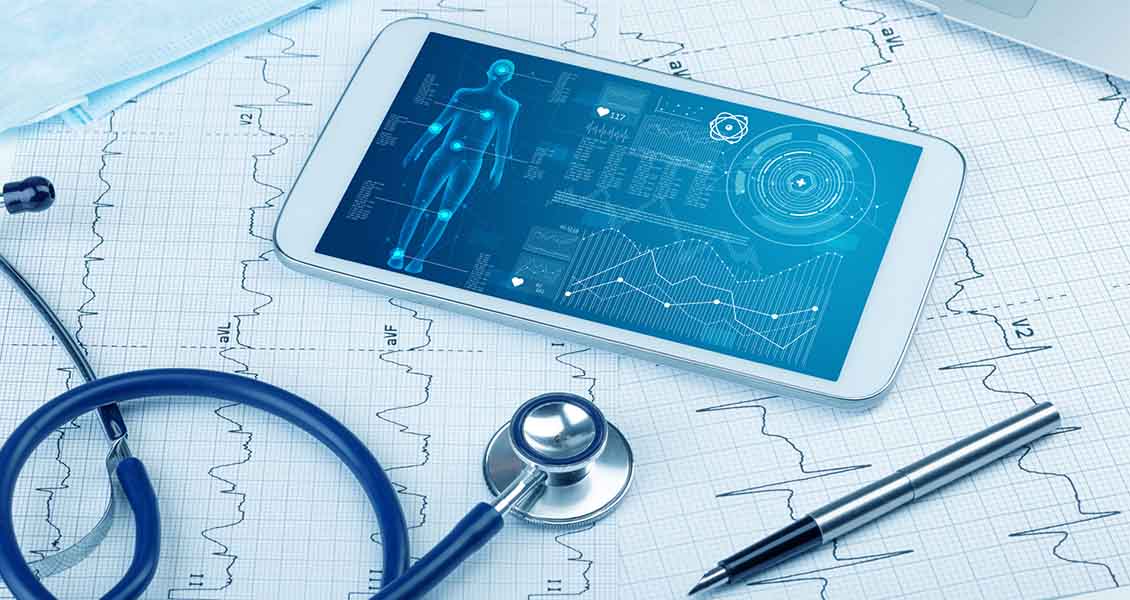Leveraging Digital Technology for Inclusive Health: A Guide for African Governments
- October 15, 2020
- Posted by: Kedrus
- Category: Digital Transformation

The World Bank has clearly pointed out that in a sector like health, digital technologies can promote inclusion, efficiency, and innovation. A digital health system will both improve basic care and improve efficiency. It will also create jobs and promote innovation by opening new ways of creating and managing people’s health care needs.
Health is consistently identified as one of the top challenges that African countries face, The most recent Afro barometer opinion poll, which was conducted in 36 African countries, highlighted the importance assigned to health by the African population. Similar to opinion polls from other continents, the survey painted a picture of significant frustration and concern with health systems in the region. Respondents noted long wait times, high costs, a lack of respect from providers, and high levels of foregone care when they or family members experience illness or injury. This is just a fragment of so many other frustrations that Africans suffer due to the poor health care system
The need for an efficient health care system that is inclusive cannot be overstated especially within the African continent. With a large percentage of our population living below the poverty level. Health care has to become a critical priority for government leaders in other to prolong life expectancy within the continent.
One of the easiest ways for Africa to achieve Inclusive health care is through proper implementation of digital technology in the delivery of health care services. By leveraging the rapid technology adoption that is taking place in Africa, countries can reach more of its excluded groups with quality health care services.
Based on our research and study of several countries both within and outside the African continent that is making great progress in improving their health care system, we are able to recommend strategic steps that African leaders can take towards achieving an inclusive health care system on the backbone of digital technology. We believe that these solutions are critical to our vision of a health care system that is available to all and accessible by all.
Centralize Health Information Systems:
Most African countries lack an organized health information system. Several initiatives have been deployed previously towards establishing a National Health Information System in most of these countries. However, we find that most of those efforts failed or are grossly inefficient due to a lack of technical know-how and adequate resources. By digitizing the information acquisition process within the health sector, we will have fewer duplicate diagnostic tests and less unnecessary hospitalization which is often the case in most government hospitals or health centers. If we can have everything from prescriptions to health histories in a digital database, it will be easier to process and share. Creating a centralized health information database will facilitate access to the right information for quality decision making with regards to investing in health care innovations and technology
African leaders must begin to put the necessary infrastructure in place required to set up a national health information system. We advise that government leaders adopt a partnership approach towards achieving this goal. This will require working closely with primary health centers across remote locations as well as private-owned hospitals both for sourcing and documenting the necessary health data.
Invest In Digital Health Innovations:
If Africa hopes to achieve inclusive health through digital technology, then it has to invest in the digital technology space. The goal is to increase the percentage of start-ups and initiatives that are intended to spur the development of a digital innovation ecosystem. This also includes organizing hackathons and business plan competitions which results in the creation of content, apps, and services that will drastically improve health care delivery. A couple of African countries majorly in the Eastern bloc have been experimenting with a variety of applications aiming to directly improve service delivery, ranging from telemedicine and e-vaccination systems to drone delivery of medicine and improvements in disease tracking and pandemic alerts.
While we celebrate this progress, there is a lot we can learn from other developing countries who are exploring how to leverage digital technologies to indirectly improve health service delivery through the use of technology and open data.
Facilitate Private Sector Involvement:
The adoption of digital healthcare tools and services is a vital step towards upgrading the quality and consistency of healthcare services in emerging nations. However, infrastructure limitations ranging from the poor power supply, hard to reach locations, security issues – can be insurmountable for the government to bear alone. There is therefore a need to leverage the capacity of key private stakeholders that can provide highly needed expertise and resources.
In Sub-Saharan Africa for instance, Philips has pioneered Community Life Centers with an approach that’s rooted in multi-stakeholder capitalism. Bringing together a diverse group of partners – national and local government, impacted communities, and service providers like Philips. These Community Life Centers offer resilient, community-owned healthcare clinics providing integrated healthcare enabled by digital technologies and capacity building services, like education and staff training, all under one roof. Solar power units, clean water, LED lighting, and solutions for waste management mean that the centers also go far beyond healthcare to act as an economic and social development driver for the community. Today, Philips operates 10 Community Life Centers – across Kenya, the Democratic Republic of Congo, South Africa, and Ethiopia.
This non-governmental investment will remain critical for addressing the continent’s immense health challenges. Governments can encourage and channel private-sector involvement and investment in priority areas such as diagnostic services, pharmaceuticals, and healthcare facilities.
By digitizing Africa’s health care system, Africans will be able to benefit from better treatment, fewer duplicate diagnostic tests, less unnecessary hospitalization, and better healthcare services. However, to reap these benefits, the adoption of digital tools must be complemented by country ownership, good governance, and strong institutional and human capacity.




